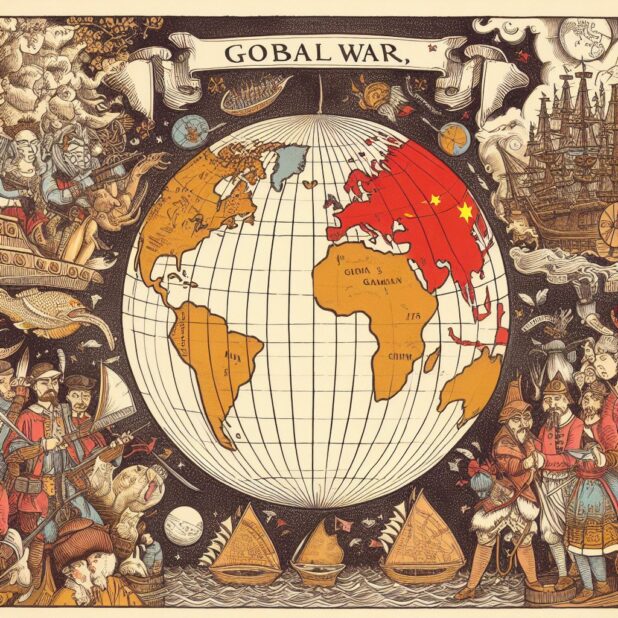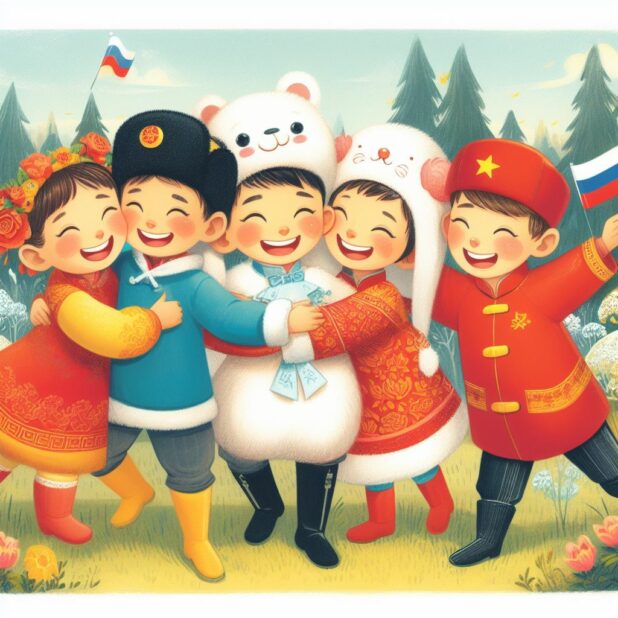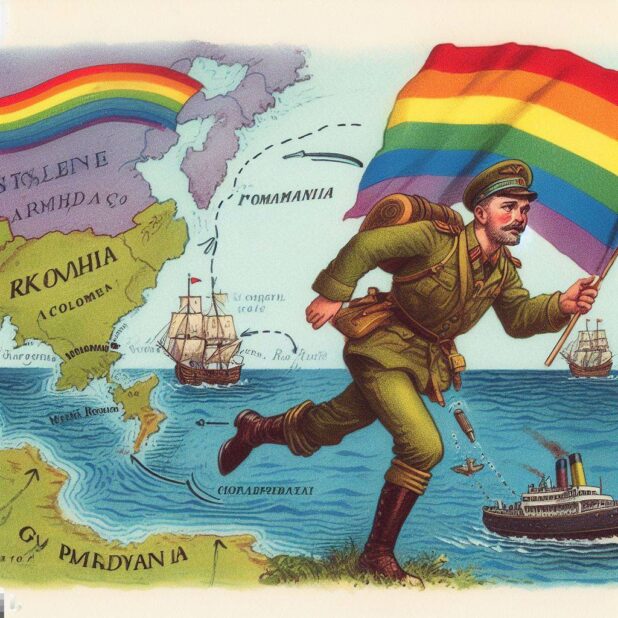
As the longtime friend remembers, before the election even happened, when I was saying Trump was going to “lose” if he didn’t stop mail-in ballots, I was saying that Joe Biden would start a triple-fronted war against Russia, Iran, and China. I even correctly called Russia out as the one they would target first, given that it was the weakest player on the board at the time.
Frankly, Russia probably still is in the weakest position, but that’s only because the other two are sitting so pretty:
- A war against China doesn’t really even make any sense, as there is no fifth column to empower, due to China’s censorship laws that have prevented the US/Jews from installing a regime-change operation in the country, and you’re certainly not going to force an ultra-nationalist nation of 1.5 billion into surrendering, and
- War with Iran risks triggering a war across the entire Middle East, where it’s possible that even Saudi could abandon the US
All the countries are stronger since the war in the Ukraine began, due to their alliance of necessity coming into full fruition, their realization of the necessity of de-dollarization, and their increased military spending. The war in the Ukraine was also “proof of concept” for the claims of the Russian and Chinese hawks that the US /Jews represent an existential threat to the world, given that they are hellbent on total domination, and will not stop with their aggression until the rainbow flag flies atop the capitol building of every nation on earth.
None of these wars are winnable for the US, in my estimation, especially given that they are now entering into blood pacts with one another. What’s more, the domestic situation in the Western nations could hardly be any worse, and one has to wonder how long “The West” will even remain cohesive.
Regardless, Russia is the weakest still. There is an established fifth column of university students and the sexually depraved, there is a volatile domestic situation involving ethnic division, there is an aging ruling class, and so on. That does not matter, however, because the Jews are demanding their homeland take priority, and the Jews are absolutely the backbone of the “Western” system.
The Economist, a magazine where the writers (almost) all publish anonymously (and thus could be anyone), is a foreign policy mouthpiece of the State Department and the intelligence agencies. It’s even more relevant than the New York Times.
It’s not as simple as reading it, of course, as you have to understand that the people writing it, while representatives of the government, are stupid and don’t really understand foreign policy at all. You know, however, that whatever it publishes are the assumptions that the people who make decisions are operating under. It’s what the people in the Senate read to understand the agenda.
They’re now basically saying the Ukraine war is over – even as this is the beginning of a new world war. That is: they’re saying the exact same thing I was saying in spring (at that time they were still saying the “counteroffensive” was going to make big gains, and they might even seize Crimea).
RT:
A growing number of Western leaders have reportedly conceded that the Russia-Ukraine conflict may drag on for another five years, stuck in a “stalemate” that neither side is capable of shattering.
The crisis has already strained the West’s military capacity amid struggles to produce enough artillery shells, [The Economist] said, and the Israel-Hamas war creates further stress.
“As time goes on, there will be trade-offs as certain key systems are diverted to Israel,” Mark Cancian, a senior adviser at the Center for Strategic and International Studies in Washington, wrote last month. “A few systems that Ukraine needs for its counteroffensive may not be available in the numbers that Ukraine would like.”
Ukraine’s top general, Valery Zaluzhny, raised eyebrows when he told The Economist earlier this month that the conflict with Russia had reached a stalemate. Although officials in US President Joe Biden’s administration were troubled by Zaluzhny’s candor, they agreed with his assessment, the New York Times reported last week.
The Ukraine crisis has revealed how “meager” Western armories are, The Economist claimed. Even as the US ramps up its output of 155mm artillery shells, its production in 2025 will be lower than Russia’s in 2024, the magazine added. If the overlapping conflicts in Ukraine and Israel both drag on, Washington and its allies would be hard-pressed to cope with another crisis.
“If the war in Ukraine stays an open sore in Europe and the Middle East remains ablaze, the West will struggle gravely should another serious crisis erupt,” the outlet warned. “One risk is that adversaries simply capitalize on chaos elsewhere for their own ends. If America were bogged down in a Pacific war, for instance, Iran would surely feel more confident of getting away with a dash for nuclear weapons.”
The magazine called the situation a “new world disorder” and suggested that Russia and China see “opportunities” in the growing threats. “Even more worrying is the prospect of active collusion. European military planners give weight to the possibility that Russia might conduct menacing maneuvers during a crisis over Taiwan in order to divert American attention and tie down its allies, preventing them from lending a hand in Asia.”
It’s all very obvious by now, surely.
It was obvious to me years and years ago, but it took these people quite a while to understand.
The Economist argued that Russia’s economy would collapse as a result of the war in the Ukraine, for example, while failing to determine that China would provide a lifeline.
The reason China provided Russia a lifeline, and strengthened the alliance after the war, is that China understands that Russia has to be their ally, because the plan of the US is to dominate both countries.
These people running US foreign policy (and writing The Economist) think everyone else is stupid, and are constantly confused when predictions based on that premise do not pan out.
They were saying up until recently that China wouldn’t help Russia militarily, ever. They also legitimately believed that the Ukraine was going to beat Russia if they got enough weapons. They freaked out over the withdrawal from Afghanistan, but kept talking about how the Kabul puppet government could still hold out.
The Economist declaring the Ukraine a stalemate means the pivot has truly begun.




